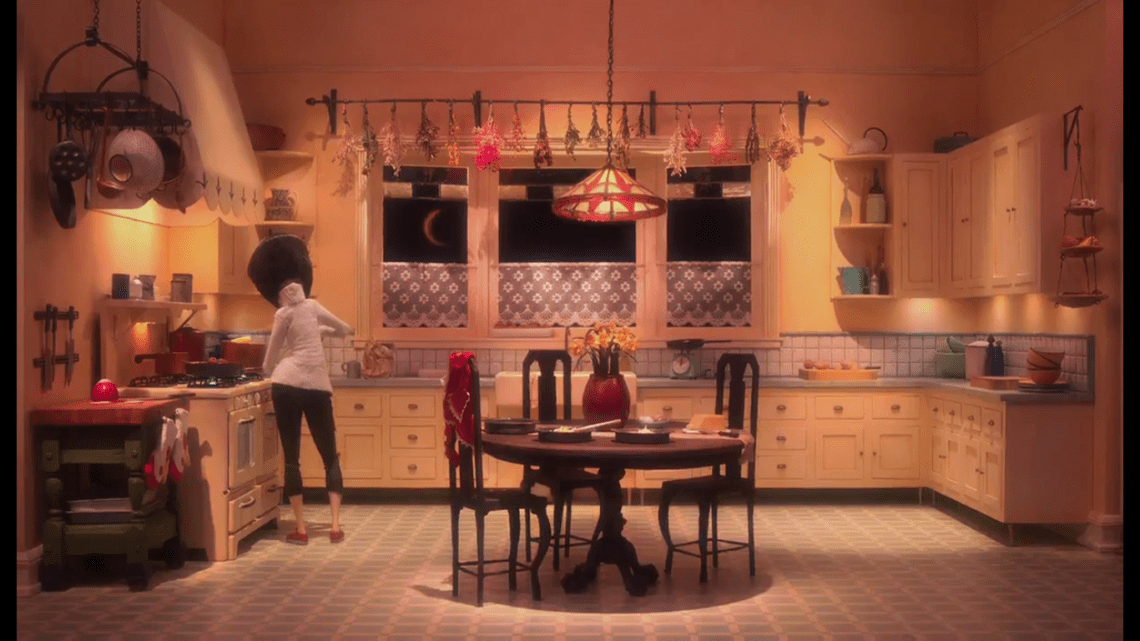In the 2009 film Coraline, we see the creation of a double world. The story follows Coraline, who was forced to move across the country because of her parent’s desires. It’s in the Pink Palace that Coraline finds herself bored and neglected day in and day out. The colors are dull and muted, the neighbors are annoying and uninteresting, and the house is basically falling apart. Soon, Coraline finds herself in an alternate world just on the other side of a mouse door. Even the tunnel leading to the double of the Pink Palace is filled with bright blue and purple lights, luring Coraline even further. When she arrives, we see another Pink Palace, but one that initiates wonder rather than sorrow. It is in perfect condition, the colors are warm and inviting, the furniture is comfortable, and there is humming and marvelous scents coming from the kitchen. It is there that she finds the doppelgänger of her mother without a neck brace, with a perfectly straight nose, and oddly, buttons for eyes. She sends Coraline looking for her “father,” another doppelgänger, who instead of hunching over his computer, is singing and playing the piano. The Other Mother attempts to create this double home with everything Coraline lacks in her real home. She cooks, the other father gardens, and they both care. The doppelgängers of the neighbors even do the wonderous things they only dream about in the real world. Because this “dream” world is so tempting, Coraline ignores that everyone has buttons for eyes and that it is always nighttime. But the Other Mother is evil, and she traps Coraline in this double world, that turns out to all be a facade. Coraline believed the “dream” world was everything she was missing, but it turned into her nightmare. Coraline escapes the double world and their doppelgängers, teaching her that nothing is perfect. Although the real world could never be as wonderous as the double world, Coraline makes the most of her comfortable life with her true loving parents. At least she escaped the Other Mother and her tricks, or so we think…

August 29, 2024





Comments by Zoe Whitfield